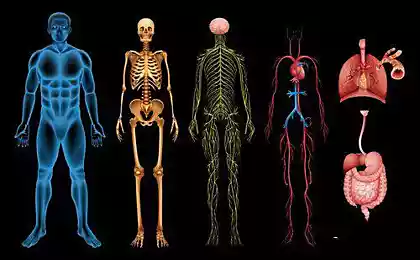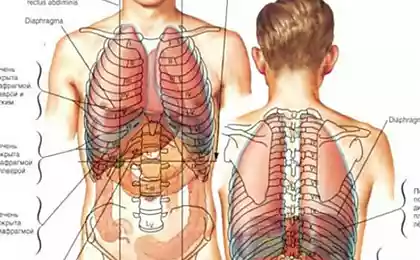314
Hold your face! How to Manage Your Emotions
Emotions often arise in the wrong place, not at the right time or with the right intensity.
Not always the usual reaction is the most adequate response, sometimes your emotions can hurt other people.
When we are overwhelmed with emotions, we think much worse than in a calm state.Sometimes you just need to rest, and then unnecessary emotions are useless.

Developed personality to be able to manage emotions is useful, and the ability to manage emotions is a matter of education. It is a well-bred person who differs from the unbred in the first place by the fact that he knows how to manage his emotions even where it is difficult and not desirable.
A developed personality controls his emotions, knows how to manage his emotions and states, knows how to control himself.
In familiar situations, the necessary emotions are triggered directly, as directly and naturally as raising your hand: to raise (or lower) your right hand, you do not need special techniques and techniques. You just raise your hand and just lower it. Just as simply, you wonder when you need it, and change surprise to warm mindfulness when you need it.
How do you manage your emotions if necessary?
Watch your face. Keep your face calm.
The most important "recipe" is so simple that it even annoys many:
“To remove unnecessary emotion, simply remove the wrong face. Fix your eyes and lips. The main thing is to do it right away, before the emotion is unwinded..
If you can do this, the intensity of emotions will immediately subside. If this is difficult for you, train the skill of quiet presence.
Developing the skill of quiet presence is one of the easiest and most effective ways to manage emotions. Indians know how to control their emotions because they know how to keep a calm face. Training of recruits in the army begins with the “Smyrno!” counter and other numerous procedures and rituals aimed, among other things, at mastering a quiet presence. New recruits are ordinary children, it is natural for them to crook and rattle, so they tend to be afraid, resentful and upset. The army teaches them to keep a calm face and through this - to manage their emotions, to be able to maintain self-control and strength of spirit in the most difficult and responsible situations.
Watch your breath.
Changing the strength and rhythm of breathing almost instantly changes the emotional state. If you need to calm down, start taking a calm breath and exhale. When you need to raise energy, it is enough to do energizing exercises. Someone arranges a mini-training of karate, someone uses special yoga exercises - the essence is the same everywhere: these exercises are accompanied by strong sharp exhalations.
Control your thoughts.
Our thoughts direct our attention.
Wisdom consists not in not seeing the difficulties of life, but in treating them constructively. Remove the victim’s position and transfer problems into tasks.
If negative thoughts go around in circles, they must be stopped. How? Switching to other, more positive thoughts is best, and doing so is best for reliability out loud. Talking to yourself out loud, yes, is necessary. Other options are to switch yourself to bright, positive pictures – imagine a rainbow, beautiful flowers. This usually helps women and children well.
A separate big job is dealing with the beliefs that are behind most emotional reactions.
The keys to emotion
In a large number of situations, people manage their emotions without noticing how they are doing, even if they use special emotion keys to trigger or stop emotions.
The simplest and most effective emotion key is facial expression and body pattern: If guests come to you and you need to express your sincere joy to them, you begin to greet them joyfully, carefully care for them, probably hug them, and your face will be alive, warm and open: almost immediately after that you already feel sincere joy.
Most people explain this by saying that it’s “because people are nice,” without realizing that the real reason for this is because people are nice.
1) in triggering the kinesthetic keys of emotions,
2) in exchange with guests of positive emotions that support and promote each other.
On the contrary, the indignation that has begun, until it is promoted, is easy to remove only by the fact that you relax your face, breathe out, reduce the volume of your statements, soften your formulations and, especially, your intonations.
He who wants, he will always find ways to raise or change his mood, remove unnecessary emotion or set himself up for this or that business. Meet with friends, turn on cheerful music, shopping, elementary sleep. plurality domestic and at the same time effective ways to improve mood Everyone knows.
In addition to domestic ways to change your state, there are many exercise. These are autogenic training, emotion intensity management, Aliyev Key and many others.
However, To manage your own condition, in most cases, you need not knowledge of special techniques, but timely and careful use of the arsenal that is known to everyone and always at hand.. The main thing is desire and training.
Difficulties in managing emotions
Emotional management should not be presented as a particularly difficult task, but it cannot be simplified. In fact, not everyone can manage their emotions, and not all emotions can be controlled in principle. The ability to control yourself in difficult life situations is a separate task that requires special knowledge.
579326
The task of managing emotions is usually difficult precisely because it is set by people who have already missed the moment of the emergence of emotions, who did not prevent this occurrence, who did not prevent the actions of other people who created these emotions. At the same time, if a person moves into a more active, leadership position and launches his own and others' emotions himself before the waves of other people's emotions pour on him, he no longer needs to control his emotions. He's ahead and managing the situation himself.Whether or not a person can control their emotions, it is easy for a specialist to determine just by looking at their body.
“Rutting” is observed when uncontrolled stresses run over the body, as a result of which an attentive look will notice twitching of the shoulders, fingers, lips, muscles under the eyes. To remove the rattle, train a calm presence. This is one of the most important conditions for managing emotions.
Another prerequisite for managing emotions The ability to confidently relax in a variety of conditions and circumstances, the habit of monitoring the calm state of your body. This skill can be developed, training gives excellent results.
We list other skills without which emotional management is impossible or difficult:
And one of the most interesting things about managing emotions is the realization of the inner benefits of certain seemingly negative emotional states. As a rule, people do not realize that this anger or resentment, this fear or terrible disorder, this hysteria or suddenly piled up fatigue is not quite “natural reactions”, but our not quite conscious personal choice, which is beneficial to us in this situation and solves our certain tasks.And until you realize why you’re going through what you’re going through right now, trying to remove it will be ineffective: If you do, then you will be back again.
Is it easy to catch this inner spring that makes us stick to the usual experiences, is it possible to “catch” our inner benefits? Trained people, accustomed to being honest with themselves, track the inner benefits of their emotions without much difficulty, while most require the help of a psychologist.
Total: Not everyone can manage their emotions. Not all emotions can be controlled in principle. But your ability to manage emotions can be developed if you set yourself such a task. You can learn to manage emotions independently, or contact specialists in specialized centers. In the latter case, it is important that specialists are highly qualified, and centers are time-tested. published
Author: N.I. Kozlov
P.S. And remember, just changing our consumption – together we change the world!
Source: www.psychologos.ru/articles/view/kak_upravlyat_svoimi_emociyami_vop_zn_
Not always the usual reaction is the most adequate response, sometimes your emotions can hurt other people.
When we are overwhelmed with emotions, we think much worse than in a calm state.Sometimes you just need to rest, and then unnecessary emotions are useless.

Developed personality to be able to manage emotions is useful, and the ability to manage emotions is a matter of education. It is a well-bred person who differs from the unbred in the first place by the fact that he knows how to manage his emotions even where it is difficult and not desirable.
A developed personality controls his emotions, knows how to manage his emotions and states, knows how to control himself.
In familiar situations, the necessary emotions are triggered directly, as directly and naturally as raising your hand: to raise (or lower) your right hand, you do not need special techniques and techniques. You just raise your hand and just lower it. Just as simply, you wonder when you need it, and change surprise to warm mindfulness when you need it.
How do you manage your emotions if necessary?
Watch your face. Keep your face calm.
The most important "recipe" is so simple that it even annoys many:
“To remove unnecessary emotion, simply remove the wrong face. Fix your eyes and lips. The main thing is to do it right away, before the emotion is unwinded..
If you can do this, the intensity of emotions will immediately subside. If this is difficult for you, train the skill of quiet presence.
Developing the skill of quiet presence is one of the easiest and most effective ways to manage emotions. Indians know how to control their emotions because they know how to keep a calm face. Training of recruits in the army begins with the “Smyrno!” counter and other numerous procedures and rituals aimed, among other things, at mastering a quiet presence. New recruits are ordinary children, it is natural for them to crook and rattle, so they tend to be afraid, resentful and upset. The army teaches them to keep a calm face and through this - to manage their emotions, to be able to maintain self-control and strength of spirit in the most difficult and responsible situations.
Watch your breath.
Changing the strength and rhythm of breathing almost instantly changes the emotional state. If you need to calm down, start taking a calm breath and exhale. When you need to raise energy, it is enough to do energizing exercises. Someone arranges a mini-training of karate, someone uses special yoga exercises - the essence is the same everywhere: these exercises are accompanied by strong sharp exhalations.
Control your thoughts.
Our thoughts direct our attention.
- If we pay attention to the bright side of life, we start positive states.
- If attention with the help of thoughts is riveted to troubles real or possible, more often there is a negative.
Wisdom consists not in not seeing the difficulties of life, but in treating them constructively. Remove the victim’s position and transfer problems into tasks.
If negative thoughts go around in circles, they must be stopped. How? Switching to other, more positive thoughts is best, and doing so is best for reliability out loud. Talking to yourself out loud, yes, is necessary. Other options are to switch yourself to bright, positive pictures – imagine a rainbow, beautiful flowers. This usually helps women and children well.
A separate big job is dealing with the beliefs that are behind most emotional reactions.
The keys to emotion
In a large number of situations, people manage their emotions without noticing how they are doing, even if they use special emotion keys to trigger or stop emotions.
The simplest and most effective emotion key is facial expression and body pattern: If guests come to you and you need to express your sincere joy to them, you begin to greet them joyfully, carefully care for them, probably hug them, and your face will be alive, warm and open: almost immediately after that you already feel sincere joy.
Most people explain this by saying that it’s “because people are nice,” without realizing that the real reason for this is because people are nice.
1) in triggering the kinesthetic keys of emotions,
2) in exchange with guests of positive emotions that support and promote each other.
On the contrary, the indignation that has begun, until it is promoted, is easy to remove only by the fact that you relax your face, breathe out, reduce the volume of your statements, soften your formulations and, especially, your intonations.
He who wants, he will always find ways to raise or change his mood, remove unnecessary emotion or set himself up for this or that business. Meet with friends, turn on cheerful music, shopping, elementary sleep. plurality domestic and at the same time effective ways to improve mood Everyone knows.
In addition to domestic ways to change your state, there are many exercise. These are autogenic training, emotion intensity management, Aliyev Key and many others.
However, To manage your own condition, in most cases, you need not knowledge of special techniques, but timely and careful use of the arsenal that is known to everyone and always at hand.. The main thing is desire and training.
Difficulties in managing emotions
Emotional management should not be presented as a particularly difficult task, but it cannot be simplified. In fact, not everyone can manage their emotions, and not all emotions can be controlled in principle. The ability to control yourself in difficult life situations is a separate task that requires special knowledge.
579326
The task of managing emotions is usually difficult precisely because it is set by people who have already missed the moment of the emergence of emotions, who did not prevent this occurrence, who did not prevent the actions of other people who created these emotions. At the same time, if a person moves into a more active, leadership position and launches his own and others' emotions himself before the waves of other people's emotions pour on him, he no longer needs to control his emotions. He's ahead and managing the situation himself.Whether or not a person can control their emotions, it is easy for a specialist to determine just by looking at their body.
- If a person’s body is collected and at the same time calm, most likely the person owns his emotions.
- If the body is loose, hands-legs and facial expressions walk by chance and, as if by their own will (this happens), a person is most likely not used to tracking and controlling his emotions.
- Even worse, if the body is very tense, when the body is generally clamped or the body “rattles”.
“Rutting” is observed when uncontrolled stresses run over the body, as a result of which an attentive look will notice twitching of the shoulders, fingers, lips, muscles under the eyes. To remove the rattle, train a calm presence. This is one of the most important conditions for managing emotions.
Another prerequisite for managing emotions The ability to confidently relax in a variety of conditions and circumstances, the habit of monitoring the calm state of your body. This skill can be developed, training gives excellent results.
We list other skills without which emotional management is impossible or difficult:
- The ability to control your attention. In particular, draw your attention to what you need and distract yourself from the unnecessary.
- Facial development,training of facial expressions and gestures, the use of a rich set of voice timbres.
- Imagination, The ability to believe what you have just invented, the ability to act “as if”, to immerse yourself “in the supposed circumstances”.
- Breath control. The ability to control your breathing, the ability to play with your breathing, the ability to calm or excite yourself with different types of breathing.
And one of the most interesting things about managing emotions is the realization of the inner benefits of certain seemingly negative emotional states. As a rule, people do not realize that this anger or resentment, this fear or terrible disorder, this hysteria or suddenly piled up fatigue is not quite “natural reactions”, but our not quite conscious personal choice, which is beneficial to us in this situation and solves our certain tasks.And until you realize why you’re going through what you’re going through right now, trying to remove it will be ineffective: If you do, then you will be back again.
Is it easy to catch this inner spring that makes us stick to the usual experiences, is it possible to “catch” our inner benefits? Trained people, accustomed to being honest with themselves, track the inner benefits of their emotions without much difficulty, while most require the help of a psychologist.
Total: Not everyone can manage their emotions. Not all emotions can be controlled in principle. But your ability to manage emotions can be developed if you set yourself such a task. You can learn to manage emotions independently, or contact specialists in specialized centers. In the latter case, it is important that specialists are highly qualified, and centers are time-tested. published
Author: N.I. Kozlov
P.S. And remember, just changing our consumption – together we change the world!
Source: www.psychologos.ru/articles/view/kak_upravlyat_svoimi_emociyami_vop_zn_























